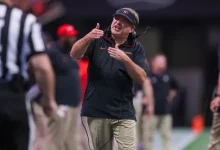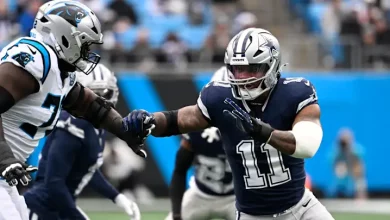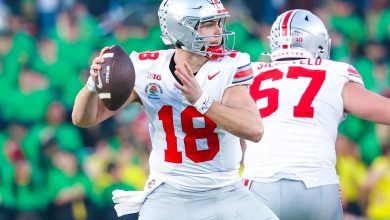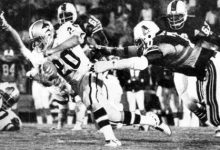Texas turned down a golden opportunity that would have been a crucial benefit to QB Arch Manning during the next College Football Playoff
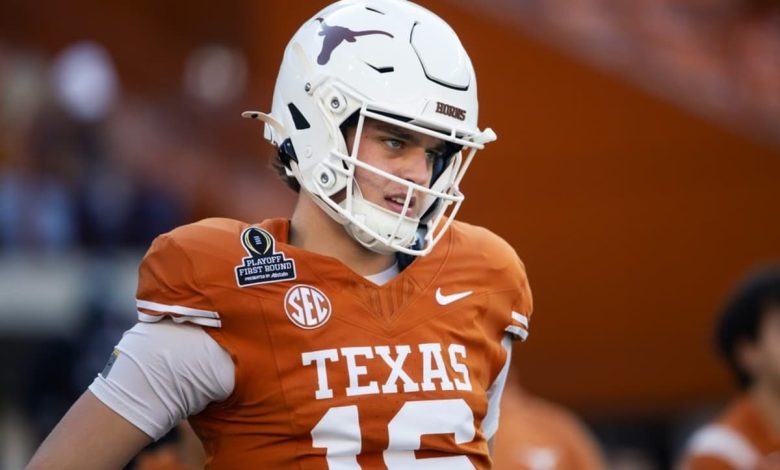
In the high-stakes environment of the College Football Playoff (CFP), strategic decisions can define a team’s trajectory. For the Texas Longhorns, a pivotal moment arose during their semifinal matchup against the Ohio State Buckeyes. Despite the mounting pressure and a close scoreline, head coach Steve Sarkisian opted to keep freshman quarterback Arch Manning on the sidelines, a choice that has since sparked debate among fans and analysts alike.
The 2024 season marked a significant chapter for Texas, as they secured a spot in the CFP semifinals against Ohio State. Throughout the season, Manning had demonstrated his potential, stepping in during crucial moments when starter Quinn Ewers was sidelined due to injuries. His performances, including a notable touchdown run against Texas A&M, showcased his dual-threat capabilities and poise under pressure .
However, as the semifinal approached, the Longhorns faced challenges. Ewers, despite his experience, had been dealing with lingering injuries, including an oblique strain and a right ankle issue . These physical setbacks had affected his performance, particularly in the red zone, where Texas had struggled to capitalize on scoring opportunities
With the game on the line and the offense needing a spark, many anticipated that Sarkisian would turn to Manning, whose mobility and fresh perspective could provide the necessary edge. Instead, Sarkisian maintained his trust in Ewers, keeping Manning on the bench during critical sequences, including a pivotal fourth-and-one situation late in the game .
This decision was met with immediate backlash. Fans took to social media, expressing their frustration over the missed opportunity to utilize Manning’s skills in a high-pressure scenario. Comments flooded in, with many questioning the rationale behind not giving the freshman a chance to impact the game .
Several factors contributed to the perception that Texas missed a golden opportunity:
- Ewers’ Injuries: As previously mentioned, Ewers had been dealing with injuries that affected his performance. His inability to execute effectively in the red zone was a concern, and Manning’s mobility could have offered a different dynamic.
- Manning’s Dual-Threat Ability: Throughout the season, Manning had demonstrated his ability to make plays with both his arm and legs. His inclusion in red-zone situations had previously yielded positive results, suggesting that he could have been an asset in these critical moments .
- The Stakes of the Game: The semifinal matchup against Ohio State was a high-stakes game, with a chance to advance to the national championship on the line. In such scenarios, teams often look to their most dynamic players to make game-changing plays. Manning’s inclusion could have provided that spark.
Following the loss, the debate intensified. Analysts and former players weighed in, discussing the implications of the decision. Some argued that Sarkisian’s choice to stick with Ewers was a testament to his confidence in the starter, while others believed that a more aggressive approach, incorporating Manning, might have altered the game’s outcome .
In retrospect, the decision not to leverage Manning’s abilities in the semifinal has been viewed by many as a missed opportunity. While it’s impossible to say definitively whether his inclusion would have changed the result, the fact remains that Texas had a talented freshman quarterback who had shown promise throughout the season. Not utilizing him in such a critical moment has left many questioning the strategic choices made during the game.
As the Longhorns prepare for the 2025 season, the experience from the CFP semifinal will undoubtedly influence future decisions. Manning, now set to take over as the starting quarterback, will have the opportunity to lead the team with the lessons learned from the previous season’s challenges.
For Texas fans and analysts, the semifinal loss serves as a reminder of the fine line between success and failure in college football. Strategic decisions, especially in high-pressure situations, can have lasting impacts. Moving forward, the hope is that the Longhorns will capitalize on all available resources, ensuring that opportunities are not missed in the pursuit of excellence.

